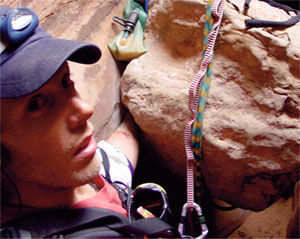Avoid hiking alone
If you’re familiar with the Aron Ralston story, you’ll understand why you should never hike alone. Ralston, an avid outdoorsman and adventurist, became trapped in a slot canyon while hiking through Utah’s Blue John Canyon in April of 2003. While descending the slot canyon, a massive 800-pound boulder became dislodged, crushed his right hand and trapped him against the canyon wall. Not only was Ralston alone, but nobody was searching for him because he hadn’t informed anyone of his plans. He was stuck for more than 5 days before freeing himself by amputating his arm with a multi-tool.

Amazingly, Ralston survived to tell the tale of his story – and to relay a valuable message to hikers of all ilk: If at all possible, avoid hiking alone. If you must hike by yourself, make sure you tell multiple friends or family members where you’re going and when you plan to be back. Additionally, make sure you bring a cell phone or communication device with you. That way, you can get help if you’re hurt or lost.
Have a plan
While it may sound obvious, it’s important to have a plan before you set out on a hike. That means familiarizing yourself with the area you will be hiking, preparing for inclement weather and bringing all the necessary supplies. Listed below are some items you should bring with you:
- Map
- Compass
- GPS system
- Cell phone
- First aid kit
- Lighter and matches
- Bug spray
- Pocket knife
- Food and water (always bring extra)
- Sunscreen
- Flashlight
If you’re leaving home for an extended period of time, don’t forget to arm your alarm system. If you don’t already have a monitored security system, consider investing in one. These systems are connected to a central command center, where trained professionals monitor your home for emergencies around the clock – even when you’re not there. Fortunately, technological advancements have made this service affordable for most people. Check out homesecuritysystems.com if you’re interested in learning more.
Understand your limits
Fatigue and exhaustion can not only slow you and your group down, but even compromise your safety on the trail. For that reason, it’s always wise to prepare yourself physically before you leave. In any case, you should never attempt a hike that is beyond your physical capabilities. Listed below are some tips that will help you avoid becoming fatigued:
- Drink plenty of water – even on cool days
- Keep your calorie intake high (don’t wait until you feel hungry)
- Wear the proper hiking gear
- Stay warm
- Be on the lookout for signs of fatigue in other hikers in your group
- Take brief, but frequent rest breaks

Speak Your Mind